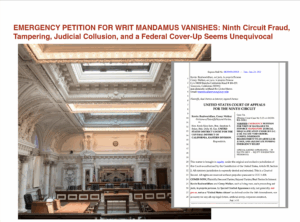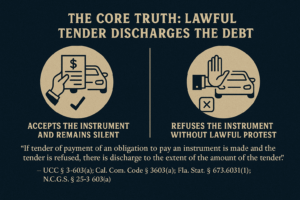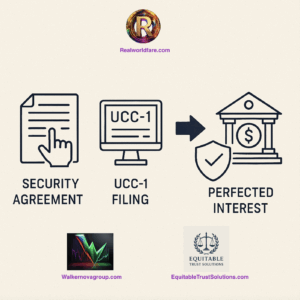In Trinsey, the court stated that “[s]tatements of counsel in their briefs or argument while enlightening to the Court are not sufficient for purposes of granting a motion to dismiss or summary judgment.”
Opinion
Civ. A. No. 34873.
May 28, 1964.
Cohen, Shapiro, Berger Cohen, by David Berger, and Herbert B. Newberg, Philadelphia, Pa., for plaintiff.
Silver Barsky, by Jay D. Barsky, Philadelphia, Pa., for defendants.
WOOD, District Judge.
This case arises out of a dispute over the extent of the plaintiff’s ownership interest in a tract of land of approximately 47.6 acres located in Gulph Mills, Pennsylvania, known as “Rebel Hill.” By an agreement, dated April 29, 1960, title to the land was taken by the plaintiff and the defendant Pagliaro. On May 9, 1960, pursuant to a second agreement between the parties title was transferred to a trustee-straw party, Howard Richard, Esq., for the benefit of Trinsey and Pagliaro.
Thereafter, on May 13, 1960, Pagliaro and his attorney, Albert Foreman, Esq., procured a blank deed from the straw party and his wife. It is this blank deed that the plaintiff by his civil action filed with this Court seeks to have nullified.
Following the delivery of the blank deed, the straw party, Richard, executed a deed on November 29, 1962, conveying “Rebel Hill” to Trinsey and Pagliaro as tenants in common. This deed was recorded in the Office of the Recorder of Deeds for Montgomery County.
A civil action was commenced by Pagliaro in Montgomery County in December 1962 against Trinsey and Richard as defendants in the Court of Common Pleas on the ground that Richard at the instance of Trinsey violated his duties as Trustee when Richard executed the November 29, 1962 deed in favor of Trinsey and Pagliaro. This action resulted in a mistrial and Trinsey filed a petition to have the case referred to arbitration before the American Arbitration Association. The Montgomery County Court granted this petition and Pagliaro appealed the order to the Pennsylvania Supreme Court which is awaiting decision at this time. The arbitration has not reached the hearing stage.
Paragraph 17 of the April 29, 1960 agreement between Trinsey and Pagliaro provides for the settlement of any disputes by arbitration.
The defendants Pagliaro and Foreman have filed a motion to dismiss the action in this Court because of the possibility of further action in the Montgomery County Court and the arbitration appeal before the Supreme Court. Also, the defendants contend in their motion that this action is moot because the deed is in the control of the Montgomery County Court, having been offered in evidence in the original action, and not in the possession of Pagliaro. Finally, the defendants argue that if the State Supreme Court sustains the order for arbitration, this Court will lack jurisdiction to decide the matter.
This Court has jurisdiction because of diversity and the amount involved. The Montgomery County in personam action attacking the acts of the Trustee and which resulted in a mistrial, as aforesaid, does not preclude this Court from taking jurisdiction of this in rem action. This Court, if the facts warrant such a determination, could nullify the blank deed of May 13, 1960, as prayed for, and declare the recorded deed creating ownership as tenants in common between the parties valid or render such other relief as might be proper insofar as the land itself is concerned.
On the record before us the arbitration proceedings on appeal concern plaintiff Trustee’s claims for back pay and collateral matters under an agreement between the parties. There is nothing before us which would warrant a determination that the arbitration proceedings will in any way determine title to the land involved, notwithstanding the statement at argument that a counterclaim had been filed in the arbitration proceedings by defendant which raised the questions previously before the Montgomery County Court, and furthermore, no mention was made of the May 13, 1960 blank deed in this counterclaim insofar as we are able to determine from the oral argument or the record.
The action before this Court being partly in rem because it seeks to nullify an outstanding deed and remove a cloud on the title of the premises is not in conflict with the in personam action before the State Court or the Arbitration Board. Insofar as this action is in personam in that it seeks to restrain the defendants from executing the blank deed in favor of anyone other than the plaintiff, the Federal Court may proceed with the litigation because there is no bar to parallel Federal and State actions where each Court has jurisdiction over the persons. Penn General Casualty Co. v. Pennsylvania, 294 U.S. 189, 195, 55 S.Ct. 386, 79 L.Ed. 850 (1935).
Mach-Tronics, Inc. v. Zirpoli, 316 F.2d 820 (9 Cir. 1963).
The defendants’ motion to dismiss for failure to state a claim unsupported by affidavits or depositions is incomplete because it requests this Court to consider facts outside the record which have not been presented in the form required by Rules 12(b)(6) and 56(c). Statements of counsel in their briefs or argument while enlightening to the Court are not sufficient for purposes of granting a motion to dismiss or summary judgment.
ORDER
And now, this 28th day of May, 1964, the defendants’ motion to dismiss is denied without prejudice.




